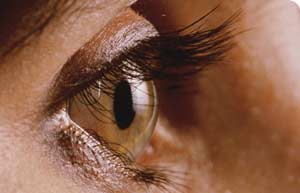London: The UK government’s drug watchdog is refusing to allow doctors to precribe a drug which could save the sight of thousands of elderly people who live in England and Wales.
At the same time the drug – Macugen – is available on the public health service, the NHS, to those living in Scotland.
Macugen is used to treat the wet form of age-related macular degeneration, where veins leak causing blindness.
The watchdog, the National Institute for Health and Clinical Excellence. said another drug, Lucentis, could be used but only if patients have gone almost blind in one eye and the disease is far progressed in the other.
It also restricted the use of Lucentis to a specific type of the condition which affects only around 20 per cent of sufferers.
There are around 26,000 new cases of wet AMD, which affects the macular region at the back of the eye, in the UK every year.
Based on Nice’s recommendations, 80 per cent of these patients – more than 20,000 a year – will be left to go blind. Macugen and Lucentis, known as antiVEGF drugs, stop the deterioration of the sight.
On Monday the Scottish Medicines Consortium, the rationing body north of the border, approved Lucentis for all NHS patients after previously giving the green light to Macugen.
It is the latest example of post-devolution Scotland giving its patients access to many drugs denied those in England and Wales, which is covered by NICE.
The drugs are also available in many other countries including Germany, France, the Netherlands, Italy, the U.S. and Australia.
Nice’s draft guidance, which is up for consultation, was greeted with anger from charities, clinicians and opposition politicians. The Royal National Institute of Blind People said it was ‘outraged’.
Head of campaigns Steve Winyard said: ‘Anti-VEGF drugs have the potential to halve the number of people going blind each year and patients in the UK who can benefit from them must all have them – and quickly.
‘It is simply unacceptable that Nice is recommending that only a small minority of patients within England and Wales will benefit from these ground-breaking treatments. Nice must reconsider.
‘Anti-VEGF drugs are cost- effective. It is much more expensive to support someone once they have lost their sight than to provide sight-saving treatment.’
Tom Bremridge, chief executive of the Macular Disease Society, said: ‘Limiting the treatment options to 20 per cent of patients who would benefit is unjustifiable and allowing one eye to go blind before treating the second is cruel and totally unacceptable.’
Winifred Amoaku, consultant at the Royal College of Opthalmologists, said the two drugs worked differently. She attacked the fact that only Lucentis had been given the go-ahead because some patients would benefit more from Macugen.
‘Both treatments should be made available to opthalmologists,’ she said. ‘One treatment doesn’t fit all and opthalmologists should be able to prescribe the most suitable option for their patient.’
The Nice ruling comes despite a study published in the New England Journal of Medicine which found that the sight of nine out of ten patients given Lucentis improved or stabilised after two years of treatment.
Lucentis costs up to £2,000 per injection or £28,000 for a full course of treatment, which is 14 injections over two years. Macugen is around £1,800 per injection or £36,000 for a full course of 20 injections.
Dr David Gillen, medical director of Macugen manufacturer Pfizer, said: ‘Macugen has been shown to maintain vision in patients will all types of wet AMD and has a licence to reflect this.
‘From a cost perspective, it has been convincingly demonstrated that Macugen’s cost-effectiveness can be enhanced when treatment is started at an early stage before too much vision is lost.’



